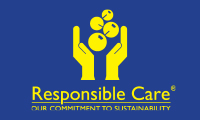With well over a quarter of a million people employed in New Zealand’s construction and facilities management sectors, there is an obvious need for a close eye on mental wellbeing. And doing your part isn’t difficult or complicated; it can be as simple as asking ‘are you OK?’

That’s according to Lisa Ducat, community engagement and health promotion specialist for the Mental Health Foundation of New Zealand. “Looking after your co-workers isn’t rocket science. All it takes is a little empathy, an effort to get to know one another, and recognition that sometimes life gets us all down and we need a hand from the people we work with.”
Ducat is presenting at the Facilities Integrate expo which takes place in Auckland from September 25-26 at Auckland’s ASB Showgrounds. Her main area of focus is mental wellbeing at work, including the development and delivery of workplace resources and information. She’s an expert in helping workplaces integrate mental wellbeing into their day-to-day systems using their own expertise and knowledge.
Mental health challenges affect everyone, as the Ministry of Health (MoH) notes, but there are also groups which are disproportionately represented in suicide statistics. The MoH says populations such as Māori, youth, men and people who use mental health and addiction services are more likely to die by suicide.
The construction industry in particular is male dominated. A recent report from Site-Safe on the high levels of suicide in this workforce highlights the many challenges which can wear upon the mental health of individuals in the trades and related industries.
It notes: ‘The workplace pressures mentioned in coroners’ reports included: job insecurity or uncertainty, the stress related to running a business, pressure to deliver under deadlines, juggling responsibilities and dealing with an injury or illness affecting the ability to work.’
Alarmingly, the report says one in eight of all cases listing workplace pressures included experiences of job insecurity or uncertain work situation.
This is of particular concern with multiple high-profile failures of large construction companies, often resulting in tradies going unpaid or being forced to wait months for their due.
Ducat says general workplace awareness through mental health workshops goes a long way to raising the issue and keeping it out in the open. “A lot of great work destigmatising mental health has been done over the years, particularly with high-profile Kiwis sharing their experiences. But we still have persistently high numbers of people experiencing mental distress, and our suicide rates aren’t going down, which means there is more to be done.”
And that’s why she strongly advocates everyone playing their part. “Looking out for the mental health of people on site isn’t just the responsibility of employers,” says Ducat, “It is everyone’s responsibility. People in construction and facilities management routinely work long hours at physically demanding jobs, often in isolation.
“All it can take to help someone in trouble is noticing them, showing you care. A small human act can make all the difference,” she concludes.
Facilities Integrate is a trade-only event and takes place 25 – 26 September 2019 at the ASB Showgrounds in Auckland. Attendance is free for all registrations prior to midnight 24 September.
Tickets for those registering after this date are priced at $25. For more information or to register your interest, visit https://www.facilitiesintegrate.nz




